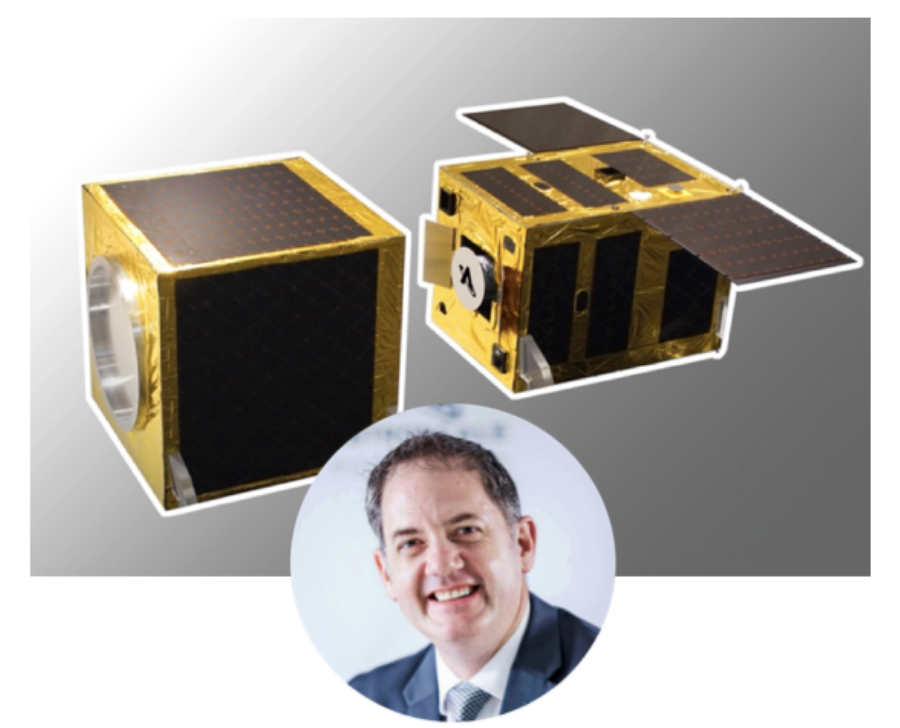Courses & Events
Astroscale and Orbital Debris: An Innovative Solution to a Growing Problem
Thursday, Nov 30, 2017
04:30 pm - 05:50 pm

Chris Blackerby COO at ASTROSCALE
Satellites provide data that play an increasing vital role in providing benefits to society. From entertainment and communications, to disaster relief and weather, among many other subjects, we are reliant on satellites for daily activities. The orbital environment from which these satellites can provide data is increasingly congested and volatile. There are currently over 20,000 pieces of debris larger than 10 cm in orbit, and millions that are greater than 1 cm. Each of these pieces of debris threaten and could potentially destroy satellite assets that provide benefits to humanity. In order to reduce the growing risk of space debris humanity must make efforts to (1) not add any more debris to orbit, and (2) remove the debris that already exists.
Astroscale, which is part of a growing ecosystem of venture space companies in Japan, is working on addressing both of these issues. Astroscale is one of only a few companies in the world developing technologies and building a business model with the goal of measuring and removing debris from orbit. With one mission to measure sub-millimeter debris scheduled to launch in November 2017, and another being planned for launch in 2019, Astroscale is moving rapidly toward the creation of a business that will remove debris from orbit and make the space environment safe and sustainable for future generations.
Details
Open to the Public – no RSVP required
NEW LOCATION THIS FALL:
Venue
- William R. Hewlett Teaching Center, Room 201, 370 Serra Mall, Stanford University [Google Map]
Parking
- Via Ortega Garage, 498 Via Ortega, Stanford, CA 94305 [Google Map]
- Roth Way Garage, 345 Campus Drive, Stanford, CA 94305 [Google Map]
- Please check parking signs carefully to ensure that permitted parking and metered spaces are free after 4:00 pm.
Subscribe to our mailing list to receive regular updates about our weekly sessions as well as a full listing of our affiliate partner events and programs.
E-mail Briana Burrows, Assistant Director, at <briana.burrows [at] stanford [dot] edu> with questions about the seminar series.
** Stanford students: Register for EASTASN-402A (cross listed as EE-402A), one-unit seminar, pass-no credit; open to all majors with no prerequisites.
Speakers
Chris Blackerby
COO, ASTROSCALE
Chris Blackerby served as the NASA Attaché for Asia, the senior space policy official in the U.S. Embassy Tokyo, from 2012-2017. In that capacity he identified multiple opportunities for cooperation in the region; served as strategic space advisor to the U.S. Ambassador to Japan and senior U.S. Government officials; acted as an official intermediary between NASA and its partners in Asia in negotiating agreements and resolving disputes; and participated in numerous outreach events highlighting NASA activities.Chris began working for NASA as a Presidential Management Fellow in 2003. While at NASA he was a leader in forging international cooperative partnerships around the world in the fields of Earth science, space science and human space exploration. From 2005- 2007 Chris was the Executive Director of the NASA Advisory Council, which provided advice to senior NASA officials on future policies and plans. Chris received a B.A. in History and Education from the University of Richmond (Va.) in 1995 and an M.A. in International Relations from the University of Rhode Island in 2002. In 2009 Chris earned an MBA from the McDonough School of Business at Georgetown University.